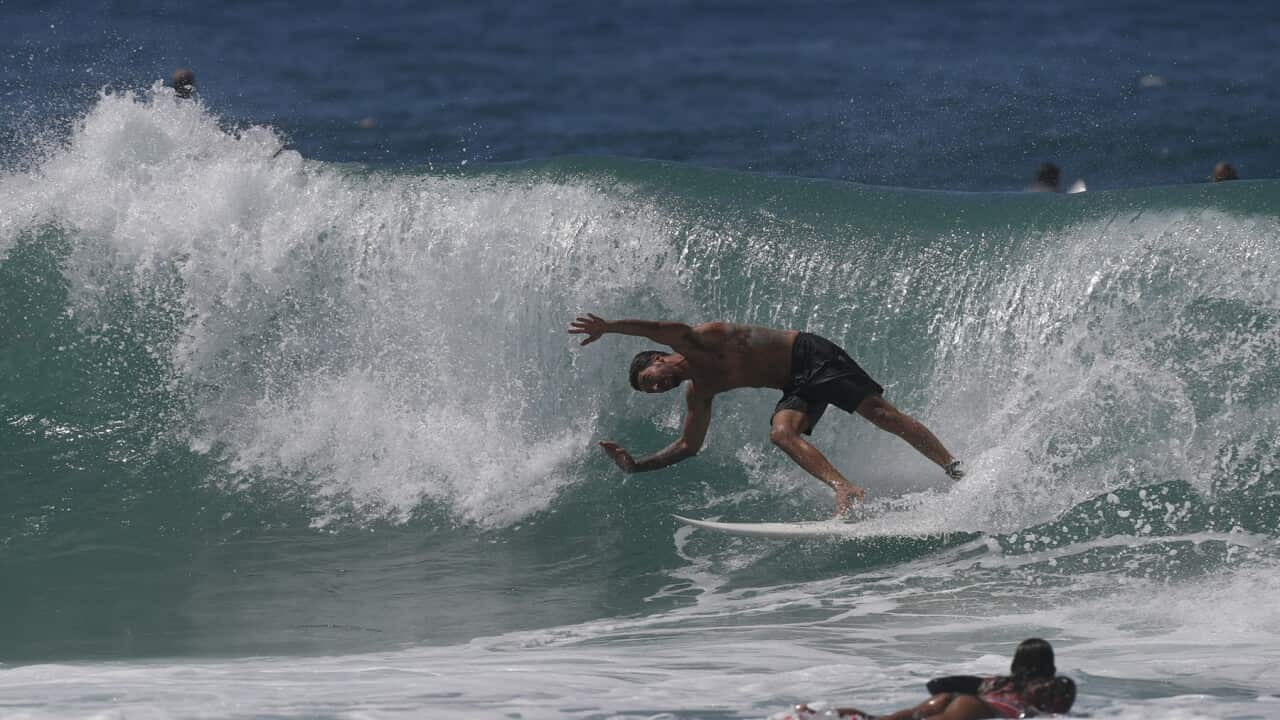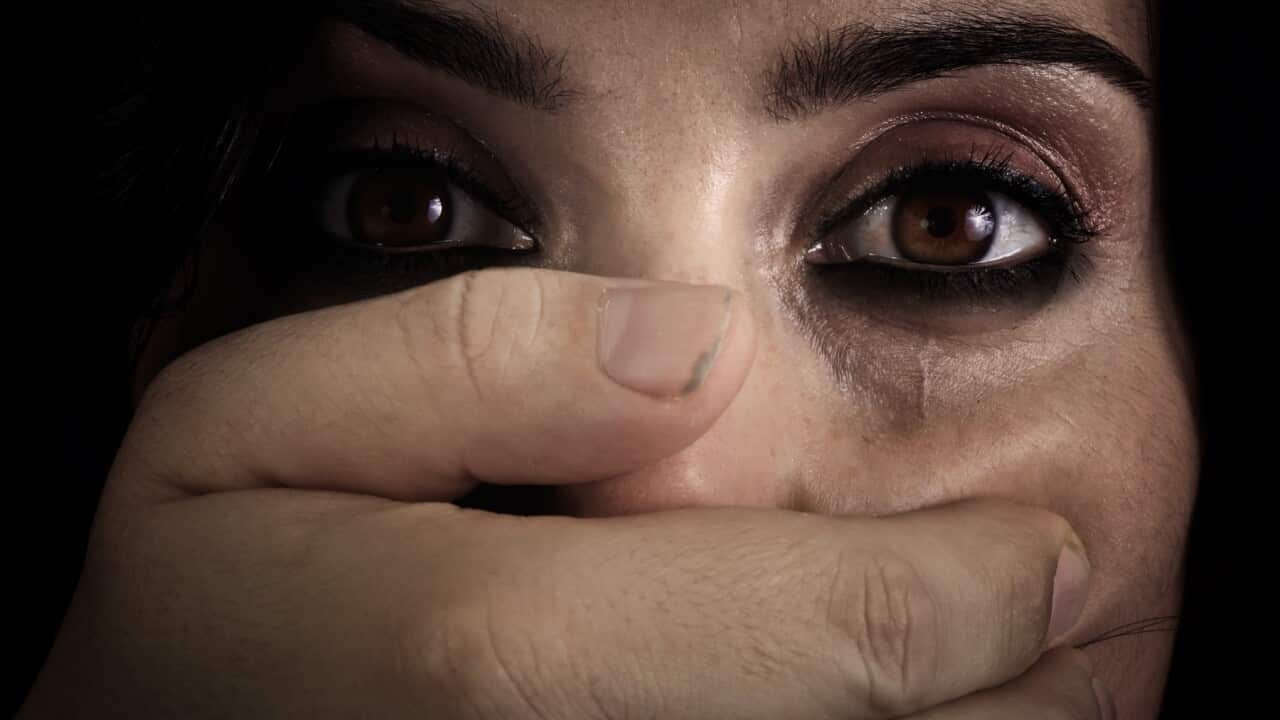English
From the streets of Rio de Janeiro to a community hall in the Welsh capital of Cardiff, the energetic rhythm of Samba drumming is playing an unexpected role in the lives of people living with Parkinson's disease.
Parkinson's disease is a degenerative condition, caused by a loss of nerve cells which then lead to a loss of the chemical dopamine.
The condition impacts both body movement and mental health, with symptoms worsening progressively over time.
The World Health Organisation reports that the number of people with Parkinson's has doubled in the last century, with at least 8.5 million people living with the condition in 2019.
Over the last year, a new Samba drumming class for patients with Parkinson's has been so successful that researchers are planning a study, to see if Samba really can ease the symptoms of the degenerative disease.
The class, which is called Sparky Samba was started by Eirwen Malin after her son attended a Samba concert.
“I suddenly thought, 'samba, hmm?' Because I know when you hear a samba band in the street, you know you can't help but go, 'doo doo' (sings and dances). And that's a big issue for people with Parkinson's, they sort of lose that sense of rhythm, they lose the rhythm of walking. Some people have this freezing of gait thing where they just suddenly can't go anywhere, especially if you're in a doorway or something. And I just thought that the samba rhythms would help them. And, I put it out on to my Twitter network, which isn't huge, but it is international. And they all said, 'yes, that's a really good idea, give it a go'.”
While the age varies, most in attendance are already showing clear signs of the condition - with symptoms such as rigidity and trouble with balance common among them.
Over the past year, patients in the class have been reporting an improvement in their symptoms, both physically and mentally.
Currently there exists no cure for Parkinson's disease.
However, the success of Sparky Samba has drawn the attention of researchers from Cardiff University, who are now planning to launch a study to see if there is clinical evidence explaining the classes success.
Researcher Cheney Drew works on drug trials for the university but is now looking into other interventions for people with Parkinson's.
She says the research will look at both biological impacts and changes to the quality of life for patients.
“We do look at things called bio-markers, which are biological changes that occur as part of the disease. They are often a really good marker of how the disease is progressing. However, we don't have really good bio-markers for Parkinson's yet and so all clinical trials are based on a rating of clinical symptoms. And that will include, as I said, quality of life, motor and cognitive symptoms.”
Ken Howard regularly attends Sparky Samba.
After being diagnosed a decade ago he was told he may not have good quality of life for long.
“I was told by a consultant who was a very blunt Yorkshire-man, he said: 'you've got Parkinson's, there's no cure, it’s degenerative, it’s progressive, which means you're only going to get worse. Your best hope is to take the medication and you might get two to three good years.' I thought to myself no-one tells me what to do like that. So that was 11 years ago so I've done more than his two or three good years.”
After reaching what doctors call stage five of the disease, where his medication has less of an impact, Ken Howard says it's important not to give in to the disease.
“If you've got Parkinson’s there’s things you can do for yourself. One is exercise, it’s absolutely vital exercise. It keeps you moving, breathing, Parkinson’s doesn't kill you, but it certainly paves the way for death. It stops you from breathing properly, and you’re susceptible to lung disease, and the second is diet, diet helps. And the third one is social integration. So many people with Parkinson’s just shut themselves away. They just don't want to get involved, people seeing them like this.”
Another class member, Brian Dews, was a drummer in a pub band.
Around three years ago, he started to notice his symptoms of Parkinson's.
Now, he says attending the Samba classes are vital for his well-being.
"Before samba I was struggling to get out the chair, so at least I am a bit more mobile now. Not quite so stiff, which is part and parcel of Parkinson's, the stiffness in the joints. I tend to still be leaning over to one side, so I've got to try to prop myself up. But I think without samba I would be struggling.”
Eirwen Malin says it's incredibly important for people with Parkinson's to realise that they can improve their lives.
She says that unless people realise they can help themselves, they won't know how - and that's why a clinical trial is so important.
“If we can do that and people with Parkinson's know that this is actually better for them, good for them in lots of different ways, including actually addressing some of their symptoms. Then there's nothing to stop them getting on and doing it themselves. You know, you wait ages for somebody to come along and wave a magic wand, but if there's something you can do yourself, then that's really, to me, that's really important.”
Researcher Cheney Drew says the evidence is critical, to show what exactly is needed to help Parkinson patients live as good quality lives as they can.
“And that is one of the reasons that we're doing the trial, trying to tease out those complex mechanisms and understanding is actually the drumming itself? So there's a phenomenon called rhythmic auditory stimulation which has been shown to improve the way the brain talks to itself and the way that messages are relayed around the brain. But also there may be a social component. We don't know that. And we will have to control for that carefully in our experiments to make sure that we can understand what it is about Sparky Samba that may be helping people.”
Italian
Dalle strade di Rio de Janeiro a una sala comunitaria nella capitale gallese di Cardiff, il ritmo energico dei tamburi di samba sta giocando un ruolo inaspettato nella vita delle persone affette dal morbo di Parkinson.
Il morbo di Parkinson è una patologia degenerativa, causata dalla morte di cellule nervose che portano alla perdita della sostanza chimica dopamina.
Questa patologia ha un impatto sia sul movimento del corpo che sulla salute mentale e i sintomi peggiorano progressivamente nel tempo.
L'Organizzazione Mondiale della Sanità riferisce che il numero di persone affette da Parkinson è raddoppiato nel corso dell'ultimo secolo, con almeno 8,5 milioni di persone che convivevano con questa patologia nel 2019.
Nell'ultimo anno, un nuovo corso Samba di percussioni per i pazienti affetti da Parkinson ha avuto un tale successo che i ricercatori stanno pianificando uno studio per verificare se il Samba può davvero alleviare i sintomi della malattia degenerativa.
Il corso, chiamato Sparky Samba, è stato avviato da Eirwen Malin, dopo che suo figlio aveva assistito a un concerto di samba.
“I suddenly thought samba hmm? Because I know when you hear a samba band in the street, you know you can't help but go, doo doo (sings and dances). And that's a big issue for people with Parkinson's, they sort of lose that sense of rhythm, they lose the rhythm of walking. Some people have this freezing of gait thing where they just suddenly can't go anywhere, especially if you're in a doorway or something. And I just thought that the samba rhythms would help them. And, I put it out on to my Twitter network, which isn't huge, but it is international. And they all said, yes, that's a really good idea, give it a go.”
Sebbene l'età vari, la maggior parte dei partecipanti mostra già chiari segni della patologia, con sintomi comuni come rigidità e problemi di equilibrio.
Nell'ultimo anno, i pazienti del corso hanno riferito un miglioramento dei loro sintomi, sia a livello fisico che mentale.
Attualmente non esiste una cura per la malattia di Parkinson.
Tuttavia, il successo di Sparky Samba ha attirato l'attenzione dei ricercatori dell'Università di Cardiff, che ora intendono avviare uno studio per verificare se esistono prove cliniche che spieghino il successo del corso.
La ricercatrice Cheney Drew lavora alla sperimentazione di farmaci per l'università, ma ora sta esaminando altri interventi per le persone affette da Parkinson.
Drew ha detto che la ricerca esaminerà sia l'impatto biologico che i cambiamenti nella qualità della vita dei pazienti.
“We do look at things called bio-markers, which are biological changes that occur as part of the disease. They are often a really good marker of how the disease is progressing. However, we don't have really good bio-markers for Parkinson's yet and so all clinical trials are based on a rating of clinical symptoms. And that will include, as I said, quality of life, motor and cognitive symptoms.”
Ken Howard frequenta regolarmente Sparky Samba.
Dopo la diagnosi di dieci anni fa, gli fu detto che forse non avrebbe avuto una buona qualità di vita a lungo.
“I was told by a consultant who was a very blunt Yorkshire-man, he said: 'you've got Parkinson's, there's no cure, it’s degenerative, it’s progressive, which means you're only going to get worse. Your best hope is to take the medication and you might get two to three good years.' I thought to myself no-one tells me what to do like that. So that was 11 years ago so I've done more than his two or three good years.”
Dopo aver raggiunto quello che i medici chiamano il quinto stadio della malattia, in cui i farmaci hanno un impatto minore, Ken Howard dice che è importante non arrendersi alla malattia.
“If you've got Parkinson’s there’s things you can do for yourself. One is exercise, it’s absolutely vital exercise. It keeps you moving, breathing, Parkinson’s doesn't kill you, but it certainly paves the way for death. It stops you from breathing properly, and you’re susceptible to lung disease, and the second is diet, diet helps. And the third one is social integration. So many people with Parkinson’s just shut themselves away. They just don't want to get involved, people seeing them like this.”
Un altro membro della classe, Brian Dews, era un batterista in una pub band.
Circa tre anni fa ha iniziato a notare i sintomi del Parkinson.
Ora dice che frequentare le lezioni di samba è vitale per il suo benessere.
"Before samba I was struggling to get out the chair, so at least I am a bit more mobile now. Not quite so stiff, which is part and parcel of Parkinson's, the stiffness in the joints. I tend to still be leaning over to one side, so I've got to try to prop myself up. But I think without samba I would be struggling.”
Eirwen Malin afferma che è incredibilmente importante che le persone con Parkinson si rendano conto di poter migliorare la propria vita.
Malin sostiene che se le persone non si rendono conto di potersi aiutare da sole, non sapranno come fare, ed è per questo che uno studio clinico è così importante.
“If we can do that and people with Parkinson's know that this is actually better for them, good for them in lots of different ways, including actually addressing some of their symptoms. Then there's nothing to stop them getting on and doing it themselves. You know, you wait ages for somebody to come along and wave a magic wand, but if there's something you can do yourself, then that's really, to me, that's really important.”
La ricercatriceCheney Drew afferma che le prove sono fondamentali per dimostrare cosa sia esattamente necessario per aiutare i pazienti affetti da Parkinson a vivere una vita di qualità ottimale.
“And that is one of the reasons that we're doing the trial, trying to tease out those complex mechanisms and understanding is actually the drumming itself? So there's a phenomenon called rhythmic auditory stimulation which has been shown to improve the way the brain talks to itself and the way that messages are relayed around the brain. But also there may be a social component. We don't know that. And we will have to control for that carefully in our experiments to make sure that we can understand what it is about Sparky Samba that may be helping people.”




